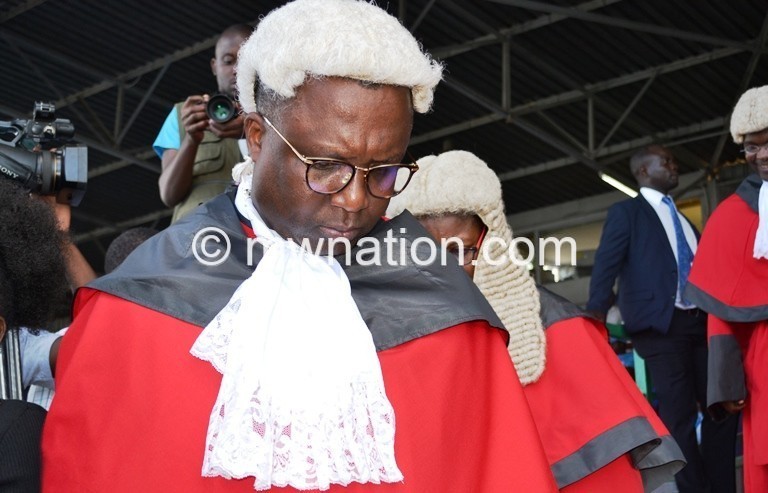Don’t criminalise poverty—judges
Two judges of the High Court of Malawi have cautioned courts against criminalising poverty by handing stiffer sentences to economically poor offenders for petty crimes while the rich get away with lighter sentences.
Judges Ken Manda and Chifundo Kachale expressed the sentiments in Lilongwe on Monday at the opening of a workshop for magistrates on alternative sentencing.

The duo lamented the prevailing conditions in the country’s prisons and appealed to the magistrates to embrace alternative sentencing instead of custodial sentences.
In his remarks, Manda, who chairs the Prison Services Inspectorate, said prisons were infested with offenders who committed less serious crimes serving long sentences, some for petty theft cases, while some of those who participated in Cashgate—the plunder of public resources at Capital Hill exposed in 2013—were either out or serving lesser sentences.
He said: “We have people in prison who committed robbery of property whose value is around K200 000 spending many years in jail while people who were convicted of Cashgate only spent a few years.”
Taking his turn, Kachale, who is chairperson of Judicial Training Commission, agreed with his colleague. He said the situation erodes public confidence in the Judiciary and the justice system in general, especially when the perceived rich get away with lesser sentences.
He said: “From the reports from the Malawi Prison Inspectorate, it is clear that prison conditions in Malawi are overly inconvenient with appalling living conditions for inmates. Although seemingly peripheral to our work as magistrates until recent times, this is a factor we must consider when passing judgments.”
In an interview later, Kachale said the inspectorate identified several sentencing trends which were irregular and led to prison congestion and attendant challenges such as diseases as well as hardening of inmates.
“The concept of rule of law is supposed to be a governance culture. If people lose confidence in the type of orders that the Judiciary is giving out, then you can never have a society that is governed by rule of law.
“People have to believe that if they go to court they are going to be fairly treated. Whether the perceptions are justified or not is a different issue, but if our own work, our own orders, are undermining the confidence that people are supposed to have in our orders, then we are actually undermining the whole process of rule of law,” he said.
On alternative sentencing, Kachale called for the need for mindset change, saying the law has several options with custodial sentence as just one of them.
He, however, commended the Judiciary for making progress on tackling pre-trial detention, saying the number of people on remand before trial has reduced by 20 percent.
In a separate interview, Centre for Human Rights Education, Advice and Assistance (Chreaa) executive director Victor Mhango, whose organisation is conducting the nationwide training of the magistrates, said the project was conceived to tackle the poor conditions in prison as a way of promoting rights of citizens.
During the workshop, the Prison Services Inspectorate made a presentation on diabolic conditions inside prisons while the High Court judges focused on the alternative sentencing mechanism.





